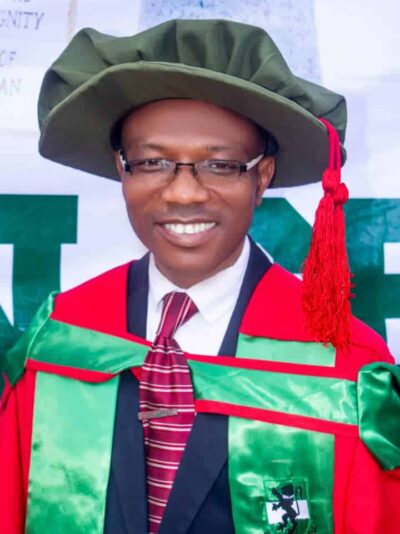 Academic offerings spanning across various faculties and colleges
Academic offerings spanning across various faculties and colleges
Dr. Charles C. Eze is a multi-media journalism and political communication expert with over eleven years of cognate lecturing and research experiences in Mass communication. His major areas of specialization include Multimedia Journalism, Political Communication, Development Communication, and Public Relations. Mass Communication and Information and Media Studies.
Head, Department of Mass Communication, Faculty of Social Sciences, Madonna University, Nigeria.
The study examined the perception level and usage of the social media among the undergraduate students of Chuwuemeka Odimegwu Ojukwu University, Anambra state. Using survey research design, a sample of 399 respondents was randomly drawn from the population of the university students who were administered the questionnaire that served as the instrument of data collection. Findings from the study indicate that the of awareness of the social media network is high among the students; the steady use of Facebook encroach into the students’ study time and this usage is mostly related to entertainment purposes to the detriment of academic and e-learning functions that may also be gotten from the social media. It was recommended that the National Universities Commission in partnership with the Universities’ management should ensure that students are oriented on recent strategies aimed at maximizing the social media for gaining academic and research purposes.
The research studied newspaper coverage of the Ebola Virus Disease (EVD) outbreak in Nigeria from July 20 to October 20, 2014, which were the dates the EVD outbreak lasted. A content analysis was used as the research design in analyzing the editions of the Guardian and Vanguard newspapers for three months in order to ascertain their frequency of coverage, level of prominence and the nature of news stories covered on the Ebola virus disease outbreak in Nigeria. Findings reveal the rate of coverage of the EVD by the press was low; the level of prominence accorded news contents of the EVD was average; and there were not sufficient interpretations and in-depth analyses carried by the columnists to sensitize readers on the EVD outbreak in Nigeria. The study recommended that the Nigerian Press Organization should develop an editorial policy that would make it binding on different newspaper editorial boards to channel their agenda setting roles in championing massive health campaigns and advocacy towards educating readers on the containment of imminent diseases such as EVD if such occurs.
The study offered a descriptive discourse of the relationship between the social media and national security in some identified countries and Nigeria. Anchored on the Uses and Gratification theory, the study made use of a qualitative approach in observing that the social media have long evolved beyond being mere social communication platforms to satisfying other needs and purposes for which anti-terrorism is paramount. The research made some recommendations that captured advanced techniques advocated by security experts through which the social media networks and other Information and Communication Technologies can be utilized to counter insecurities occasioned by the activities of Boko Haram in Nigeria.
Media ownership in Nigeria is capital-oriented venture, hence conventional media institutions are mainly owned by wealthy individuals, corporate bodies or government thereby resulting in relative low emphasis on media entrepreneurship. The result is that other viable self-reliant media entrepreneurial efforts are untapped. Media practitioners hardly explore other entrepreneurial ventures in media practice tailored towards self-reliance and independence. This has affected the rate of entrepreneurial development in the country. To this end, this research that is done in the context of development communication provides the use of communication to promote development. It is concerned with facilitating communication to promote transformation of our country and her people from poverty to a dynamic state of economic growth which makes possible greater social equality and the larger fulfilment of human potentials.

